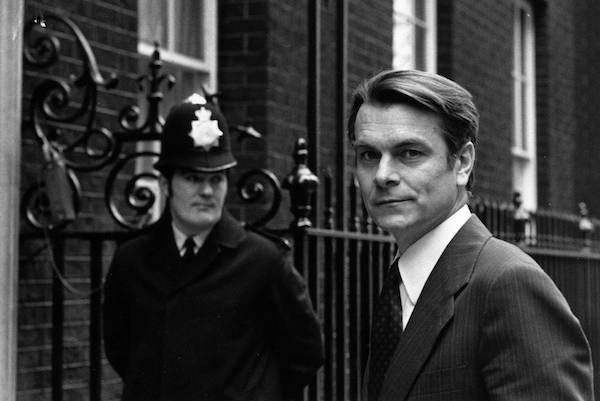There is an intriguing intervention from Lord Owen in this morning’s Times (£) — and he has also written a book on the subject, Europe Restructured?. He writes:
(He goes on to pose two rather different questions for the referendum itself — Do you want the UK to be part of the single market in a wider European Community? Yes/No Do you want the UK to remain in the European Union, keeping open the option of joining the more integrated eurozone? Yes/No.)‘The [likely response to the] eurozone crisis [greater integration] now presents us with a clear choice: do we want to be part of a country called Europe? Or should the UK be a self-governing nation in a new, looser European Community?’
When might this referendum take place? Owen writes:
The matter is likely to be forced, Owen suggests, by the German election in the autumn of next year, which will be dominated by the twinned issues of political integration and fiscal discipline. The German election increases the probability that the Tories’ plan to make a referendum pledge the centrepiece of their 2015 election manifesto will be scuppered by events.‘A referendum on the future of Europe I believe is inevitable at some point between 2013 and 2106 at the latest.’ [I expect he means 2016.]
Lord Owen’s argument is also diverting from a historical perspective. He says that he has never felt a political affinity with Europe; that ‘Europeans are friends and neighbours, but not fellow citizens’. He has not always been so clear-minded. His personal relationship with the European project has been long and complex. In 1972, he resigned from the shadow cabinet over Harold Wilson’s opposition to British membership of the Common Market. And in 1987, Owen led the SDP into an alliance with David Steel’s Liberals. The two parties’ manifesto contained the following passage:
This ambition, I would argue, required wholehearted support for the integrationist policies that created the European Union. The very entity that Owen now stands against when he writes: ‘We just want our politicians to uphold our right to democratic self-government in this country.’‘We see the future of the United Kingdom as being bound up with the future of the European Community… The European Community must be the basis of a united Europe which has common policies on trade, technology and social policy, and encourages Europe’s scientific and industrial development. We believe Labour’s negative attitude to the European Community, and the obstructiveness of Mrs. Thatcher’s Government, not least in vetoing the proposed European Community programme for co-ordinated research and development, is short-sighted and unconstructive. In a world of super-powers, Europe has to speak with a united voice.’






Comments